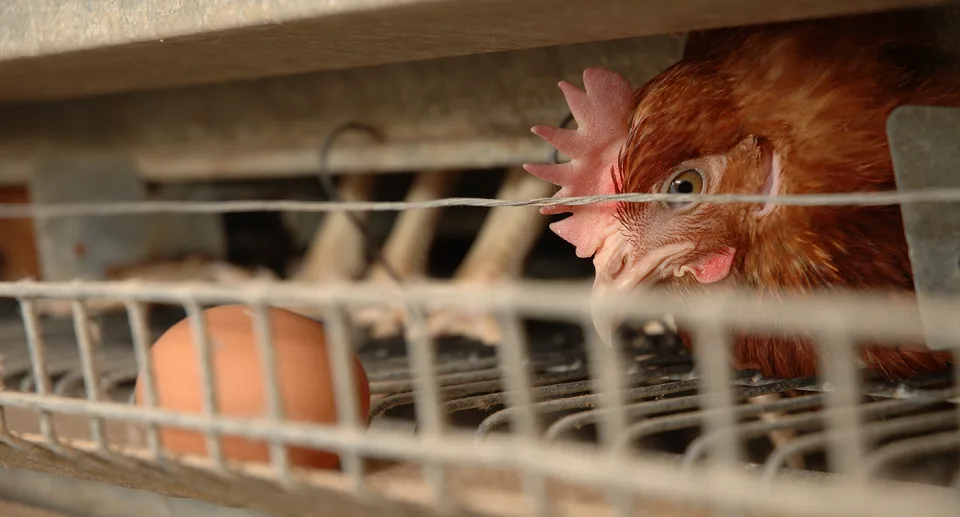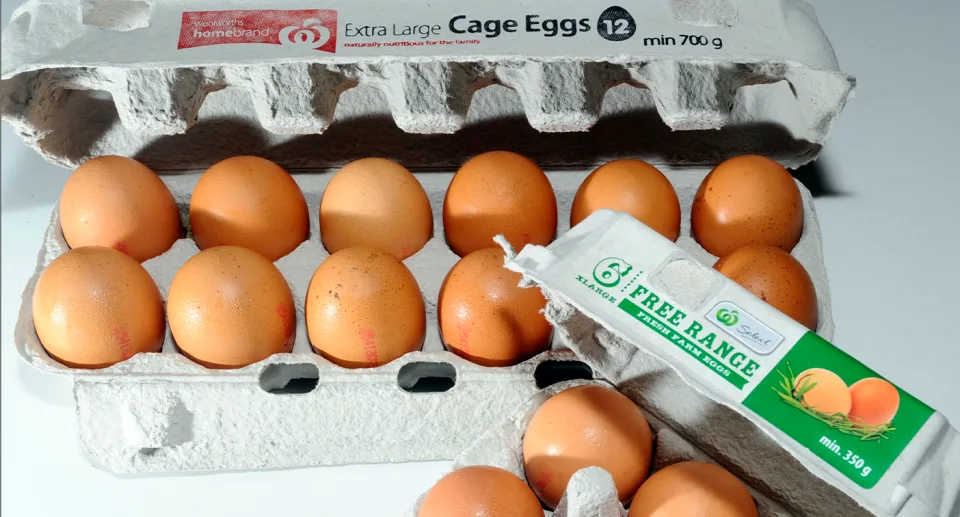Australia’s latest step towards animal welfare: Battery cage egg ban
By
- Replies 13
The welfare of stock animals for agricultural products has become a controversial topic in recent years, with many believing that these animals should be treated humanely and with respect.
Keeping that in mind, governments around the world are imposing policies that protect the animals from harsh living conditions — this includes ensuring that animals have adequate food and water, shelter, and space to move around. It also includes providing animals with appropriate medical care.
Now, Australia is leading the way in humane poultry production with the federal government's recent announcement on the ban on battery cage eggs.
Following an 'extensive process of stakeholder consultation,' as well as an evaluation of science and community expectations, the federal Department of Agriculture made the announcement on Thursday.
It was said that the eggs will be phased out from all poultry producers and stores across Australia no later than 2036.
For anyone who doesn’t know what 'battery eggs' are, the hens that lay these eggs are kept in small cages that look like caskets of batteries, which disables them from moving around.

The federal government announced the ban on eggs produced from chickens raised in battery cages. Credit: AAP.
But egg-laying hens aren’t the only ones that benefit from the announcement. New regulations requiring enrichment for meat chickens, often known as broiler hens, will also improve the welfare of these animals.
Broiler chickens, which are heavier than their egg-laying counterparts, are now required to be raised in large open sheds.
Additionally, farmers will also be obligated to provide ducks with access to water for washing and dunking for the first time.
RSPCA Australia, an organisation dedicated to promoting animal welfare, welcomed the ban announcement as a 'win for the millions of layer hens confined to battery cages'.
Other welfare activists have criticised the timeline for the policies as being too sluggish, with Animals Australia emphasising that before the adjustments are implemented, 'up to 55 million hens would be sentenced to a lifetime of pain’.
Georgie Dolphin of the Humane Society International has urged state governments to take action right away, noting that the ACT managed to outlaw them in 2018.
She explained: 'The science is clear, and public sentiment is clear, that's why so many corporations and countries have banned cruel cages already.'

Critics slammed the government for its slow action towards banning the eggs. Credit: AAP.
Emma Hurst, a member of parliament for the Animal Justice Party, called battery cages 'cruel' and criticised the phase-out for being 'prolonged'.
She also called on the NSW Agriculture Minister Dugald Saunders to formally commit his state to follow the new regulations.
Hurst said: 'The former NSW Minister for Agriculture, Adam Marshall, made a rogue declaration that he wouldn’t support a phase-out of battery cages in NSW, regardless of the outcome of the national process.'
'Surely the current Agriculture Minister Dugald Saunders won’t make the same mistake.'
Minister Saunders confirmed that while his government did not immediately commit to the new standards, they are now considering its impact on the agriculture sector.
'NSW will consider the Australian Animal Welfare Standards and Guidelines for Poultry alongside any impacts the proposed changes could have on farmers, businesses and importantly consumers,' he remarked.
'The NSW Government will consult with egg producers on the proposed guidelines ahead of any decisions on future changes or timelines for implementation.'
There is no doubt that the welfare of these animals is important. They are living, breathing beings that feel pain and suffering just like we do.
However, the question remains: how much should we care for them? Is it enough to simply ensure that they are not in pain, or should we strive to provide them with the best possible life? We’re interested in your thoughts.
Keeping that in mind, governments around the world are imposing policies that protect the animals from harsh living conditions — this includes ensuring that animals have adequate food and water, shelter, and space to move around. It also includes providing animals with appropriate medical care.
Now, Australia is leading the way in humane poultry production with the federal government's recent announcement on the ban on battery cage eggs.
Following an 'extensive process of stakeholder consultation,' as well as an evaluation of science and community expectations, the federal Department of Agriculture made the announcement on Thursday.
It was said that the eggs will be phased out from all poultry producers and stores across Australia no later than 2036.
For anyone who doesn’t know what 'battery eggs' are, the hens that lay these eggs are kept in small cages that look like caskets of batteries, which disables them from moving around.
The federal government announced the ban on eggs produced from chickens raised in battery cages. Credit: AAP.
But egg-laying hens aren’t the only ones that benefit from the announcement. New regulations requiring enrichment for meat chickens, often known as broiler hens, will also improve the welfare of these animals.
Broiler chickens, which are heavier than their egg-laying counterparts, are now required to be raised in large open sheds.
Additionally, farmers will also be obligated to provide ducks with access to water for washing and dunking for the first time.
RSPCA Australia, an organisation dedicated to promoting animal welfare, welcomed the ban announcement as a 'win for the millions of layer hens confined to battery cages'.
Other welfare activists have criticised the timeline for the policies as being too sluggish, with Animals Australia emphasising that before the adjustments are implemented, 'up to 55 million hens would be sentenced to a lifetime of pain’.
Georgie Dolphin of the Humane Society International has urged state governments to take action right away, noting that the ACT managed to outlaw them in 2018.
She explained: 'The science is clear, and public sentiment is clear, that's why so many corporations and countries have banned cruel cages already.'
Critics slammed the government for its slow action towards banning the eggs. Credit: AAP.
Emma Hurst, a member of parliament for the Animal Justice Party, called battery cages 'cruel' and criticised the phase-out for being 'prolonged'.
She also called on the NSW Agriculture Minister Dugald Saunders to formally commit his state to follow the new regulations.
Hurst said: 'The former NSW Minister for Agriculture, Adam Marshall, made a rogue declaration that he wouldn’t support a phase-out of battery cages in NSW, regardless of the outcome of the national process.'
'Surely the current Agriculture Minister Dugald Saunders won’t make the same mistake.'
Minister Saunders confirmed that while his government did not immediately commit to the new standards, they are now considering its impact on the agriculture sector.
'NSW will consider the Australian Animal Welfare Standards and Guidelines for Poultry alongside any impacts the proposed changes could have on farmers, businesses and importantly consumers,' he remarked.
'The NSW Government will consult with egg producers on the proposed guidelines ahead of any decisions on future changes or timelines for implementation.'
There is no doubt that the welfare of these animals is important. They are living, breathing beings that feel pain and suffering just like we do.
However, the question remains: how much should we care for them? Is it enough to simply ensure that they are not in pain, or should we strive to provide them with the best possible life? We’re interested in your thoughts.







